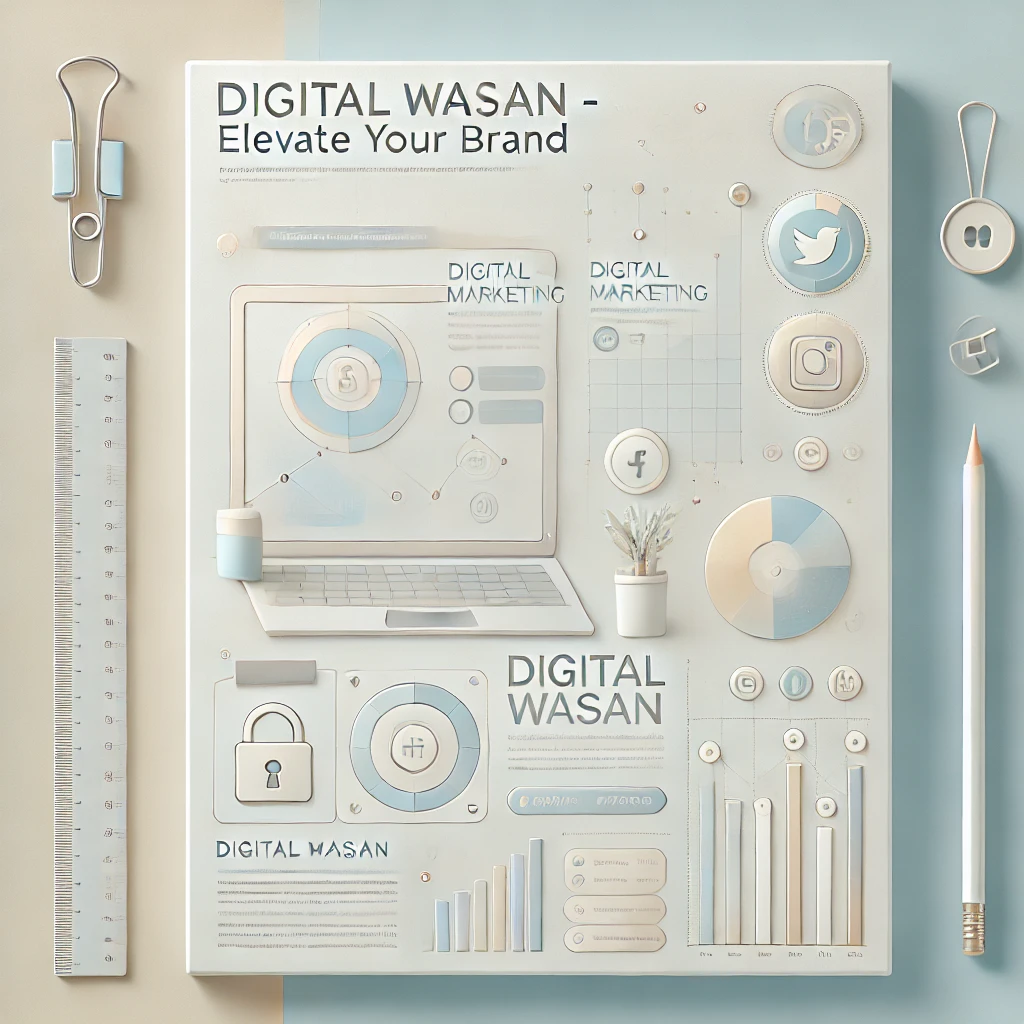
In today’s fast-paced, interconnected world, businesses are no longer confined to traditional forms of advertising. Digital marketing has emerged as a revolutionary way to engage with customers, build brand identity, and achieve unparalleled growth. Let’s delve into how digital marketing has transformed industries and explore the strategies that businesses can adopt to thrive in the digital age.
Understanding Digital Marketing
Digital marketing refers to promoting products or services using digital technologies and online platforms. Unlike traditional marketing methods, digital marketing provides measurable results and a global reach. With the right strategy, businesses can target specific audiences and engage with them in real-time, fostering a sense of connection and loyalty.
The core components of digital marketing include:
- Search Engine Optimization (SEO): Enhancing a website’s visibility on search engines.
- Content Marketing: Creating valuable, relevant content to attract and retain a defined audience.
- Social Media Marketing: Leveraging platforms like Facebook, Instagram, and LinkedIn to engage with potential customers.
- Pay-Per-Click Advertising (PPC): Driving traffic to a website through paid advertisements.
- Email Marketing: Building relationships with customers through personalized emails.
Why Digital Marketing Matters
Digital marketing isn’t just a buzzword; it’s a necessity for businesses in the 21st century. Here’s why:
- Global Reach: With the internet breaking geographical barriers, even small businesses can reach international audiences.
- Cost-Effectiveness: Compared to traditional marketing methods like TV and radio ads, digital marketing offers a higher return on investment (ROI) at a fraction of the cost.
- Data-Driven Decisions: Analytics tools allow businesses to track user behavior and preferences, enabling them to make informed decisions.
- Real-Time Interaction: Social media platforms enable businesses to engage with their audience instantly, addressing queries and building trust.
- Adaptability: Digital marketing campaigns can be adjusted in real-time based on performance metrics, ensuring optimal results.
Key Trends Shaping Digital Marketing
Digital marketing is ever-evolving, and staying updated with the latest trends is crucial for success. Here are some current trends shaping the industry:
- Artificial Intelligence (AI): AI tools like chatbots and predictive analytics are enhancing customer experiences and optimizing campaigns.
- Voice Search Optimization: With the rise of voice-activated devices, businesses need to tailor their content for voice queries.
- Video Content Dominance: Videos continue to outperform other content types in terms of engagement and conversions.
- Personalization: Customers expect tailored experiences, making personalized marketing campaigns more critical than ever.
- Sustainability Marketing: Brands promoting eco-friendly initiatives are resonating with environmentally conscious consumers.
Strategies for Effective Digital Marketing
To excel in digital marketing, businesses must adopt a comprehensive and strategic approach. Here’s a roadmap to success:
- Define Clear Goals: Whether it’s increasing brand awareness, generating leads, or driving sales, having clear objectives is crucial.
- Know Your Audience: Understanding your target audience’s demographics, preferences, and behavior is key to creating effective campaigns.
- Create Quality Content: Content is the backbone of digital marketing. Focus on delivering value through informative, entertaining, and engaging content.
- Optimize for Mobile: With the majority of internet users accessing the web via mobile devices, ensuring a mobile-friendly experience is essential.
- Leverage Social Media: Each social platform has its unique audience and tone. Tailor your content to match the platform’s style and audience.
- Invest in Analytics: Use tools like Google Analytics to monitor campaign performance and make data-driven improvements.
- Experiment and Adapt: The digital landscape is dynamic. Experiment with different strategies and adapt based on what works best for your business.
Challenges in Digital Marketing
While digital marketing offers numerous benefits, it’s not without its challenges. Businesses often face hurdles such as:
- Keeping Up with Trends: The rapid pace of technological advancements can make it difficult to stay updated.
- Data Privacy Concerns: Striking a balance between personalization and privacy is a delicate task.
- High Competition: The digital space is crowded, making it challenging to stand out.
- Measuring ROI: Determining the effectiveness of campaigns can be complex, especially for multi-channel strategies.
The Future of Digital Marketing
As technology continues to evolve, the future of digital marketing looks promising and exciting. Some anticipated advancements include:
- Advanced AI and Machine Learning: These technologies will drive deeper personalization and automation.
- Augmented Reality (AR) and Virtual Reality (VR): AR and VR are set to revolutionize the way consumers interact with products online.
- Blockchain in Marketing: Blockchain technology will enhance transparency and trust in digital advertising.
- Ethical Marketing: Businesses will increasingly focus on ethical practices, such as fair data usage and inclusive campaigns.
- Integration of IoT: The Internet of Things will enable hyper-connected marketing strategies, providing unique opportunities for customer engagement.
Conclusion
Digital marketing has undeniably transformed the way businesses operate, offering unparalleled opportunities for growth and innovation. By understanding the fundamentals, staying updated with trends, and addressing challenges head-on, businesses can harness the power of digital marketing to achieve their goals. As we move forward, embracing technological advancements and prioritizing customer-centric approaches will be the key to long-term success in the digital age.
Whether you’re a small startup or a global enterprise, now is the time to invest in digital marketing and unlock its endless possibilities. After all, the digital world isn’t the future—it’s the present. Seize it.
